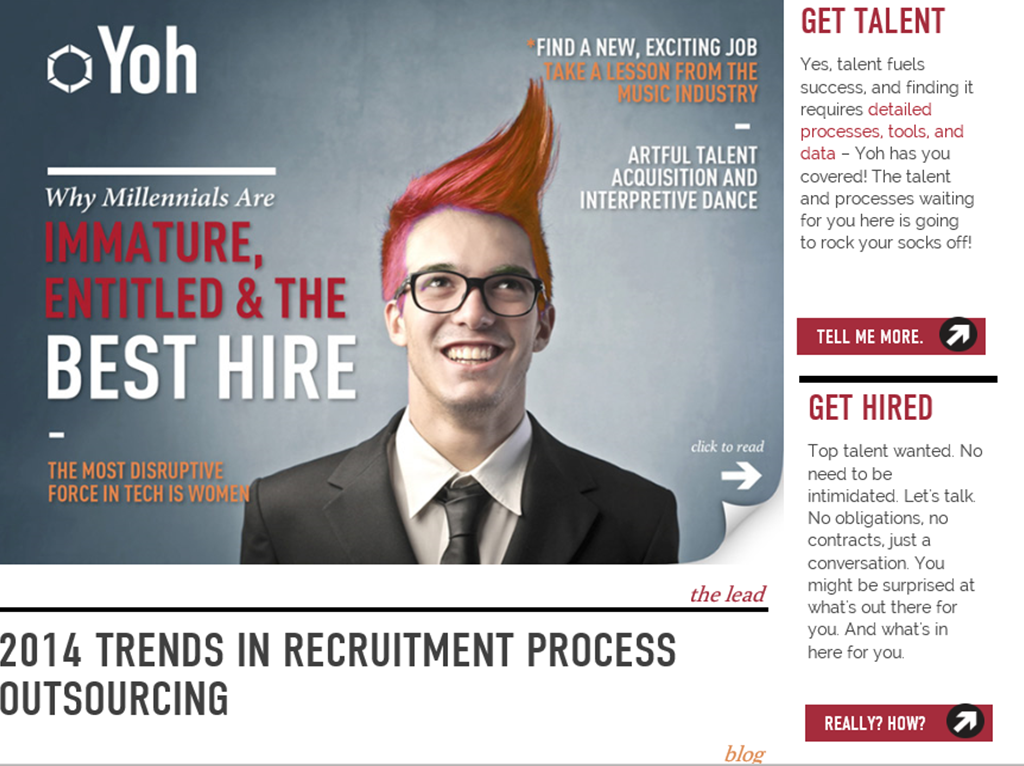Case Study: Supplying Expert IT Talent for a Nonprofit Healthcare Provider
Technology's impact on patient care is more significant than ever. Rapid technological advancements...
%20Size%20Photos/GettyImages-2155531273.jpg?width=779&height=726&name=GettyImages-2155531273.jpg)
%20Size%20Photos/GettyImages-2155531273.jpg?width=350&height=233&name=GettyImages-2155531273.jpg) Is there any industry untouched by AI? Probably not. Whether it's finance, retail, or healthcare, technology is revolutionizing how we work, and recruitment is no exception. One of the most significant challenges in any industry—especially in the healthcare field—is finding, hiring, and retaining top talent.
Is there any industry untouched by AI? Probably not. Whether it's finance, retail, or healthcare, technology is revolutionizing how we work, and recruitment is no exception. One of the most significant challenges in any industry—especially in the healthcare field—is finding, hiring, and retaining top talent.
To meet this challenge, more organizations are turning to the complex technology for help recruiting healthcare workers. The benefits are clear: technology empower recruiters to make well-informed decisions quickly, helping them identify the best-fit candidates in a fraction of the time it once took.
In this article, we’ll explore how you can integrate AI into your healthcare recruitment process without losing the crucial human touch and how this integration can benefit your organization.
AI has the potential to revolutionize recruitment, but it’s essential not to lose sight of the human element—especially in healthcare, where empathy is critical. To maintain this balance, it’s crucial to determine which tasks can be automated and which require a personal touch.
For example, automated systems can be used to screen resumes for hard skills, but conducting interviews to assess soft skills and cultural fit should remain in the hands of your team. Human interaction during these stages helps build a meaningful connection and ensures the candidate is the right fit for your organization's culture.
Healthcare organizations should develop a recruitment strategy that combines the efficiency of smart technology with the emotional intelligence only humans can provide. By balancing AI with human interaction, you can improve your hiring process and lay the foundation for long-term success.
AI is transforming recruitment across various industries, including healthcare. In fact, 62% of talent acquisition professionals are optimistic about AI’s impact on hiring. Here’s why.
One of it's biggest advantages is automating routine tasks like interview scheduling and resume screening. By automating these time-consuming processes, AI frees up recruiters to focus on more strategic aspects of hiring. In turn, it reduces the workload on your recruiters, while simultaneously speeding up the recruitment process.
While human decisions can unintentionally be biased, AI relies solely on data. However, this assumption depends on the training data being free of biases to ensure fairness. Using AI in your hiring process helps focus evaluations on candidates' skills and qualifications, fostering diversity and inclusion within your organization.
Hiring top talent can be expensive, but technology can help mitigate those costs. By automating labor-intensive tasks, it reduces the time and resources needed to find the right fit, minimizing the risk of costly mis-hires and lowering turnover rates.
AI’s impact on healthcare recruitment is far-reaching, but it’s critical to maintain empathy in the process. Here are a few key areas where the technology can help without sacrificing the human element.
Crafting an engaging, comprehensive job description can be both tedious and time-consuming. Many organizations end up copying others, which can hurt their credibility and fail to attract top talent.
With AI tools at your disposal, you can easily create compelling job descriptions and advertising content that resonate with candidates. These tools also help by automatically identifying and incorporating the right keywords to match candidates' expectations and preferences.
Sourcing qualified candidates is a significant challenge in healthcare. Talent acquisition specialists spend about a third of their week—nearly 13 hours—sourcing candidates for just one role.
AI can automate this process by matching job requirements with candidate profiles, expanding your talent pool, and significantly reducing the time spent on sourcing.
52% of recruitment leaders say that shortlisting the "right fit" is the toughest part of their job, highlighting the need for a more efficient solution in identifying talent.
AI is a game-changer here, automating the resume screening process by evaluating candidates based on skills, experience, and other criteria listed in the job description. This ensures you’re shortlisting the best candidates without the headache of manual tasks.
Scheduling interviews is another task that doesn’t require human empathy but can be incredibly time-consuming. AI can automate the scheduling process, allowing candidates to pick a time that works for them, reducing the no-show rate, and easing the burden on your team.
Technology isn’t here to replace recruiters; it’s here to support them. By incorporating these tools into healthcare recruitment, you can streamline the hiring process and locate better talent. However, it’s important to recognize when a human touch is needed. Striking the right balance between automation and personal interaction will lead to more effective and empathetic hiring results.
About the Author: Taimoor Asghar is a Technical Content Writer with a passion for emerging technologies. He crafts engaging narratives through blogs, articles, and how-to guides that captivate audiences and inspire them to delve deeper into the ever-evolving world of tech innovation.
/Specialty%20Practices%20Stock/Healthcare%20and%20Technology.jpg)
Technology's impact on patient care is more significant than ever. Rapid technological advancements...
August 15, 2023

This past week we rolled out a brand new Yoh. The first thing you will notice, if you were familiar...
February 12, 2014

The Gig Economy is old news. You've been requesting Ubers, having your groceries delivered, and...
December 06, 2019